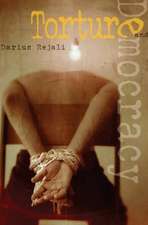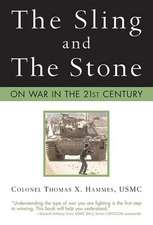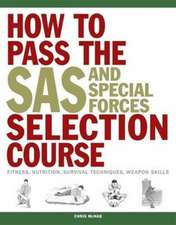Naval Blockades in Peace and War: An Economic History since 1750
Autor Lance E. Davis, Stanley L. Engermanen Limba Engleză Paperback – 8 aug 2012
| Toate formatele și edițiile | Preț | Express |
|---|---|---|
| Paperback (1) | 441.55 lei 6-8 săpt. | |
| Cambridge University Press – 8 aug 2012 | 441.55 lei 6-8 săpt. | |
| Hardback (1) | 867.72 lei 6-8 săpt. | |
| Cambridge University Press – 3 dec 2006 | 867.72 lei 6-8 săpt. |
Preț: 441.55 lei
Nou
Puncte Express: 662
Preț estimativ în valută:
84.51€ • 87.90$ • 70.82£
84.51€ • 87.90$ • 70.82£
Carte tipărită la comandă
Livrare economică 14-28 martie
Preluare comenzi: 021 569.72.76
Specificații
ISBN-13: 9781107406155
ISBN-10: 1107406153
Pagini: 464
Dimensiuni: 152 x 229 x 26 mm
Greutate: 0.68 kg
Editura: Cambridge University Press
Colecția Cambridge University Press
Locul publicării:New York, United States
ISBN-10: 1107406153
Pagini: 464
Dimensiuni: 152 x 229 x 26 mm
Greutate: 0.68 kg
Editura: Cambridge University Press
Colecția Cambridge University Press
Locul publicării:New York, United States
Cuprins
Preface; 1. Introduction: 'Thou shalt not pass'; 2. Britain, France and Napoleon's Continental Systems, 1793–1815; 3. The United States versus Great Britain, 1776–1815; 4. The North blockades the Confederacy, 1861–5; 5. International law and naval blockades during World War I: Britain, Germany, and the United States: traditional strategies versus the submarine; 6. Legal and economic aspects of naval blockades: the United States, Great Britain, and Germany in World War II; 7. The American submarine and aerial mine blockade of the Japanese home islands, 1941–5; 8. Blockades without war: from Pacific blockades to sanctions; 9. Blockades, war and international law: what it all means; Conclusion.
Recenzii
"Providing extensive research and case histories, including that of author and environmentalist Rachel Carson, Aronowitz presents his findings here to a national audience."
- Library Journal
"From the perspective of a physician who is also a trained historian and social scientist, and a gifted narrator, Robert Aronowitz has written an illuminating and moving account of what has, and has not changed in the knowledge and understanding of breast cancer, its diagnosis, treatment, prognosis, and prevention, and in its lived experience in American society over the course of the nineteenth and twentieth centuries. Drawing principally on rich case studies of women with breast cancer, and the clinical records and correspondence of physicians who have been pathmakers in this field of medicine, he vividly demonstrates the entwined influence of scientific, technological, social, and cultural factors on this history. He does it in a way that not only provides first-hand insights into the attitudes and values of patients afflicted with breast cancer, their suffering and decision-making, but of their doctors and families as well."
- Renée C. Fox, PhD, Annenberg Professor Emerita of the Social Sciences, University of Pennsylvania
"A fascinating and thought-provoking study of the clinical experience of breast cancer patients and their physicians. Through an imaginative reconstruction of that experience, Aronowitz shows how culture -- in terms of values and medical ideas and practices -- has changed over the past two centuries, while shaping the perceived choices of both doctor and patient. The author wants us to think critically and circumstantially about how we evaluate risk and he succeeds admirably; this is an outstanding contribution to our understanding of medicine past and present."
- Charles Rosenberg
"Fear, risk, and the biology of disease are all critical actors in Robert Aronowitz’s path breaking new assessment of breast cancer in American society, Unnatural History. He brilliantly demonstrates how the experience of disease cannot be “resected” from time, place, and culture. Patients, clinicians, and historians will greatly benefit from his insight and compassion."
- Allan M. Brandt, Kass Professor of the History of Medicine, Harvard University
"The evolution of medicine's understanding of the biology and natural history of breast cancer as well as societal attitudes toward its detection, prevention, and treatment is a fascinating story. Dr. Aronowitz's erudite and relatively unapologetic and honest account of how 'the more things change, the more they stay the same' offers a sobering testament of how this story has unfolded over the past 2 centuries. It reflects the frustration of trying to drive at night without headlights (i.e., managing breast cancer in the 1800s, without sufficient understanding of the biology of the disease), and the delicate dance between physician and patient with respect to managing this disease during a time of growing, but often conflicting data.
Both those involved in the care of breast cancer patients, and patients and their families should find the journey that Dr. Aronowitz's book takes them on to be most illuminating."
- Andrew D. Seidman, MD, Attending Physician, Breast Cancer Medicine Service Memorial Sloan-Kettering Cancer Center
"Dr. Aronowitz has written a compelling and rich history, so much so that a review can barely skim the highlights. In addition, he wants us to think critically about risk evaluation. Aronowitz hopes that knowledge of this history will help clinicians and patients respond more thoughtfully to the challenges presented by the many options we have for confronting breast cancer."
- Shelf Awareness, Marilyn Dahl
"In his new book, Unnatural History, Robert Aronowitz, a clinician and historian of medicine at the University of Pennsylvania looks at how breast cancer was understood and experienced in the USA from the early 19th century to the present." -Alison Bateman-House, Lancet Oncology
"Unnatural History traces how breast cancer was transformed over the last two centuries from an object of fear, dealt with privately and in isolation, to a matter of enormous individual and collective concern. Robert A. Aronowitz, who is a clinician as well as a historian, draws on lively personal anecdotes as well as more standard archival sources to produce an account with both historical sweep and analytic depth." -Samantha J. King, Journal of American History
"...a superb book..." -James S. Olson, The Journal of Interdisciplinary History
- Library Journal
"From the perspective of a physician who is also a trained historian and social scientist, and a gifted narrator, Robert Aronowitz has written an illuminating and moving account of what has, and has not changed in the knowledge and understanding of breast cancer, its diagnosis, treatment, prognosis, and prevention, and in its lived experience in American society over the course of the nineteenth and twentieth centuries. Drawing principally on rich case studies of women with breast cancer, and the clinical records and correspondence of physicians who have been pathmakers in this field of medicine, he vividly demonstrates the entwined influence of scientific, technological, social, and cultural factors on this history. He does it in a way that not only provides first-hand insights into the attitudes and values of patients afflicted with breast cancer, their suffering and decision-making, but of their doctors and families as well."
- Renée C. Fox, PhD, Annenberg Professor Emerita of the Social Sciences, University of Pennsylvania
"A fascinating and thought-provoking study of the clinical experience of breast cancer patients and their physicians. Through an imaginative reconstruction of that experience, Aronowitz shows how culture -- in terms of values and medical ideas and practices -- has changed over the past two centuries, while shaping the perceived choices of both doctor and patient. The author wants us to think critically and circumstantially about how we evaluate risk and he succeeds admirably; this is an outstanding contribution to our understanding of medicine past and present."
- Charles Rosenberg
"Fear, risk, and the biology of disease are all critical actors in Robert Aronowitz’s path breaking new assessment of breast cancer in American society, Unnatural History. He brilliantly demonstrates how the experience of disease cannot be “resected” from time, place, and culture. Patients, clinicians, and historians will greatly benefit from his insight and compassion."
- Allan M. Brandt, Kass Professor of the History of Medicine, Harvard University
"The evolution of medicine's understanding of the biology and natural history of breast cancer as well as societal attitudes toward its detection, prevention, and treatment is a fascinating story. Dr. Aronowitz's erudite and relatively unapologetic and honest account of how 'the more things change, the more they stay the same' offers a sobering testament of how this story has unfolded over the past 2 centuries. It reflects the frustration of trying to drive at night without headlights (i.e., managing breast cancer in the 1800s, without sufficient understanding of the biology of the disease), and the delicate dance between physician and patient with respect to managing this disease during a time of growing, but often conflicting data.
Both those involved in the care of breast cancer patients, and patients and their families should find the journey that Dr. Aronowitz's book takes them on to be most illuminating."
- Andrew D. Seidman, MD, Attending Physician, Breast Cancer Medicine Service Memorial Sloan-Kettering Cancer Center
"Dr. Aronowitz has written a compelling and rich history, so much so that a review can barely skim the highlights. In addition, he wants us to think critically about risk evaluation. Aronowitz hopes that knowledge of this history will help clinicians and patients respond more thoughtfully to the challenges presented by the many options we have for confronting breast cancer."
- Shelf Awareness, Marilyn Dahl
"In his new book, Unnatural History, Robert Aronowitz, a clinician and historian of medicine at the University of Pennsylvania looks at how breast cancer was understood and experienced in the USA from the early 19th century to the present." -Alison Bateman-House, Lancet Oncology
"Unnatural History traces how breast cancer was transformed over the last two centuries from an object of fear, dealt with privately and in isolation, to a matter of enormous individual and collective concern. Robert A. Aronowitz, who is a clinician as well as a historian, draws on lively personal anecdotes as well as more standard archival sources to produce an account with both historical sweep and analytic depth." -Samantha J. King, Journal of American History
"...a superb book..." -James S. Olson, The Journal of Interdisciplinary History
Descriere
An examination of the effectiveness of naval blockades and sanctions since 1750.











